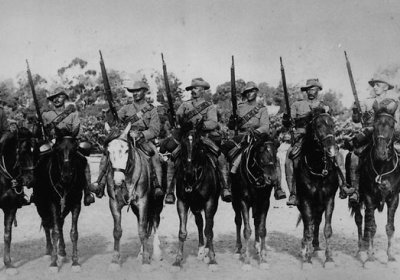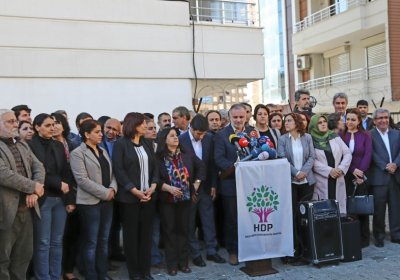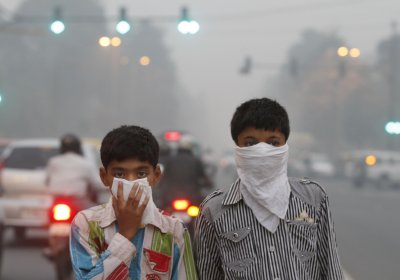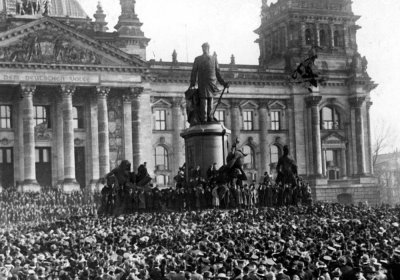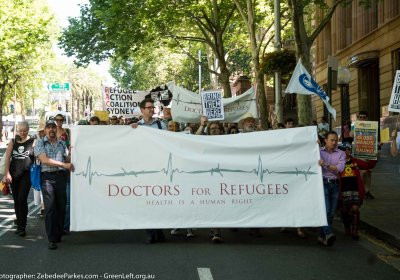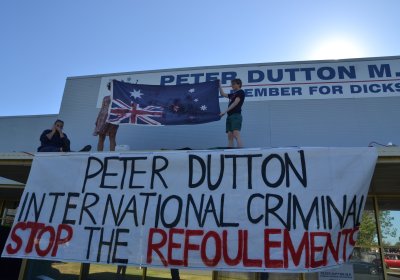Aboriginal rights activists marched to Redfern's Department of Family and Community Services (FACS) on Monday 7 November to protest the forced removal of Aboriginal children from Aboriginal families by the child protection services.
1117
Unnecessary Wars Henry Reynolds Newsouth, 2016 266 pages
Australia’s first war — the Boer War in South Africa, 1899-1902 — notes historian Henry Reynolds in Unnecessary Wars, was closely bound up with the uniting of the six Australian colonies into a single nation within the British empire.
This conjunction of militarism, nationalism and imperialism was ominous. Australia has never broken the habit of being at the military beck and call of its imperial managers.
On November 4, Turkish authorities issued arrest warrants for all 59 MPs of the Kurdish-based left-wing opposition Peoples Democratic Party (HDP). The party’s leaders, Selahattin Demirtaş and Figen Yüksekdağ, and several other MPs were taken into detention.
Demonstrators gathered on November 2 in the Colombian capital of Bogata and the US capital, Washington DC, to simultaneously protest outside the International Finance Corporation, the private lending arm of the World Bank, against the shares it holds in Canadian mining company Eco Oro Minerals Corp.
The company’s sole asset is a mining concession in one of Colombia’s high altitude wetlands, known as the paramos, which provides fresh water for millions of Colombians, the Center for International Environmental Law said in a statement.
About 300 million children live with outdoor air so polluted it can cause serious physical damage, including harming their developing brains, the United Nations said in a study released on October 31.
Nearly one child in seven around the globe breathes outdoor air that is at least six times dirtier than international guidelines, according to the study by the UN Children's Fund. The study called air pollution a leading factor in child mortality.
Eritrea marked 25 years of independence from Ethiopia this year, but its citizens remain victimised by one of the world’s most repressive governments.
They suffer arbitrary and indefinite detention; torture; inhumane conditions of confinement; restrictions on freedom of speech, movement, and belief; and indefinite conscription and forced labour in national service.
This interview by John Pilger with Jullian Assange was filmed in the Embassy of Ecuador in London – where Assange is a political refugee – and broadcast on November 5. ***
John Pilger:
What’s the significance of the FBI's intervention in these last days of the U.S. election campaign, in the case against Hillary Clinton?
Julian Assange:
In July 1915, three brothers presented themselves at Glencorse Barracks on the outskirts of Edinburgh to enlist in the Royal Scots. The First World War was almost a year old, but despite the mounting casualty lists and a growing realisation that it would not be over anytime soon, my grandfather and his two brothers joined up.
FIFA, the world’s ruling body of football (soccer), has banned wearing poppies to mark the death of British soldiers in war, which has provoked a confected outrage by British media and politicians.
The football associations of England and Scotland intend to defy the ban in the two national teams’ match on Armistice Day on November 11. In the editorial below, British left-wing daily The Morning Star responds to the hypocrisy of those opposing FIFA’s ruling. ***
Thousands turned out for the Doctors for Refugees marches in Sydney, Melbourne, Cairns, Newcastle, Darwin and Hobart on November 5 and other locations on previous days.
Three activists scaled the roof of immigration minister Peter Dutton’s Brisbane electorate office on November 2 to protest the government’s proposed new immigration law.
Activists Scarlett Squire, Kelly Purnell and Ellen Sargent climbed the roof and unfurled an Australian flag covered in blood.
Under the proposed law, any asylum seeker attempting to enter Australia by boat will be banned from ever entering the country.
Results in the October 22 Victorian local council elections were mixed.
The Greens won big increases in representation in Melbourne’s inner city councils, the two socialist councillors retained their positions, but racists retained their positions on a couple of councils.
The Greens stood more candidates than in previous council elections. They retained 13 of their 16 council seats and won an extra 16 council seats.
- Page 1
- Next page

